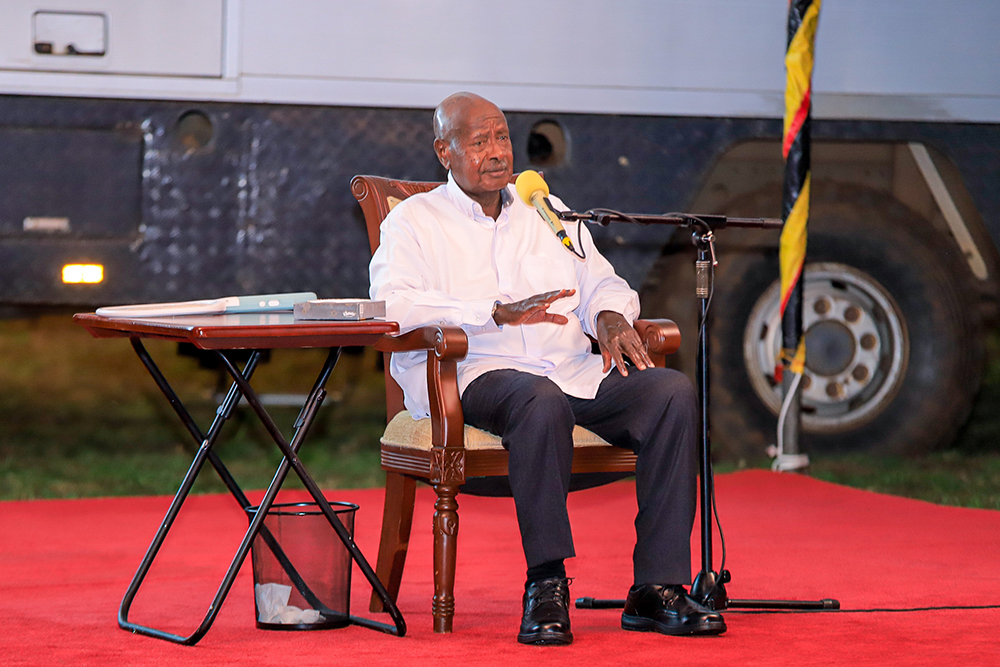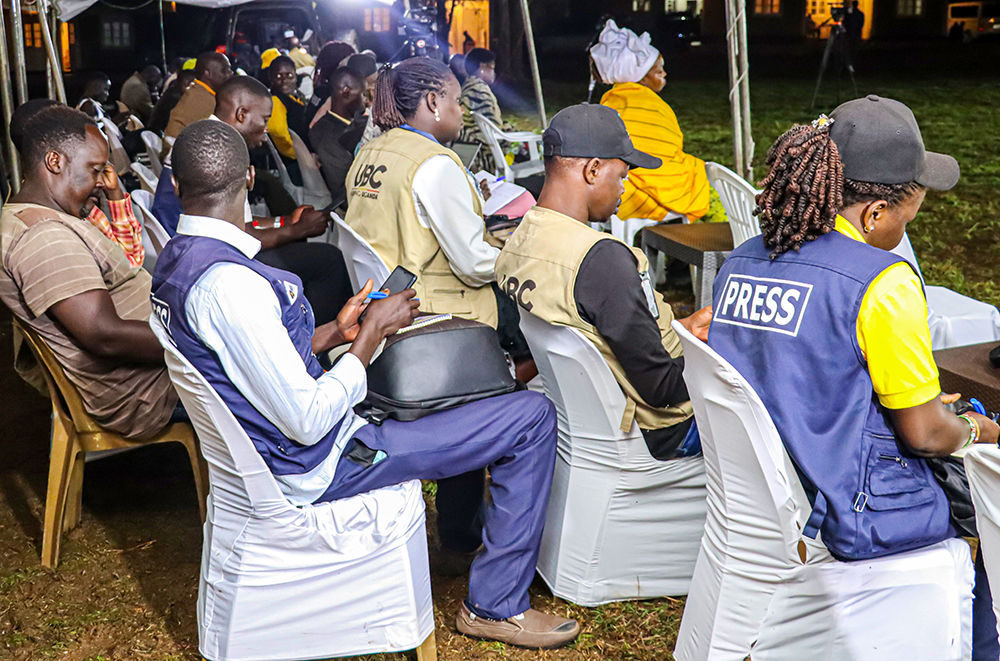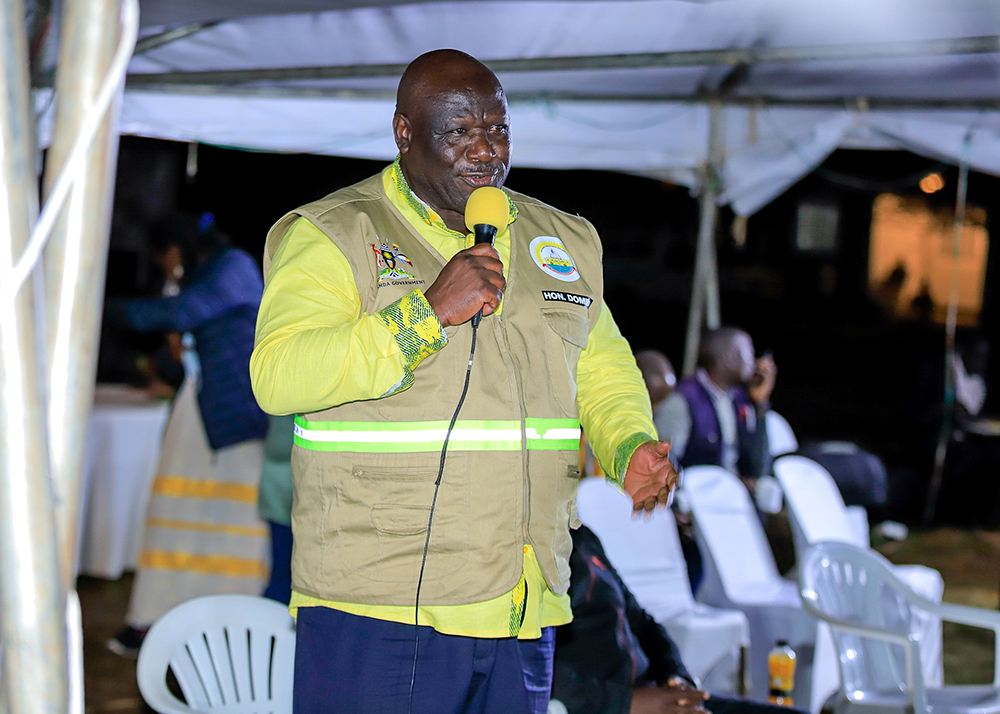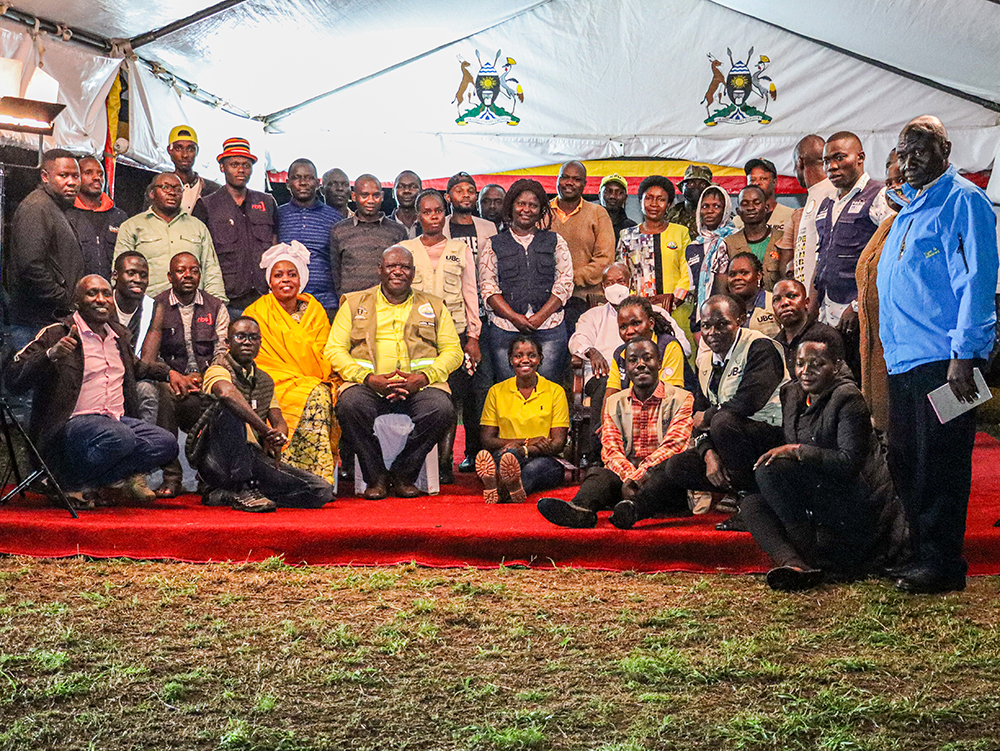Museveni declares: 'Criminals will never be a problem again in Karamoja'
President Museveni traced the historical roots of cattle rustling and the resurgence of insecurity in Karamoja, attributing them to systemic failures in earlier administrations and corruption within local security structures.
President Museveni interacting with journalists at the Morulinga State Lodge, Napak District, on Wednesday, October 29, 2025. (PPU)
________________
President Yoweri Kaguta Museveni has assured Ugandans that insecurity and cattle rustling in Karamoja are permanently defeated, declaring that criminals will never be a problem again under the National Resistance Movement (NRM) government.
The President made the remarks while addressing journalists in Karamoja sub-region at the Morulinga State Lodge, Napak District, on Wednesday, October 29, 2025. The address was part of his ongoing campaign trail ahead of the 2026 general elections.
In his detailed briefing, President Museveni traced the historical roots of cattle rustling and the resurgence of insecurity in Karamoja, attributing them to systemic failures in earlier administrations and corruption within local security structures. He noted that upon his direct intervention, the government restored order and neutralised the rustlers who had destabilised the sub-region.
President Museveni interacting with journalists. (PPU)

Journalists during the session with the president at the Morulinga State Lodge, Napak District, on Wednesday, October 29, 2025. (PPU)
“But when we came, there was corruption in the army, starting with the failure to pay the vigilantes. When we came to Barlegi, we found the real problems, and of course, the army had the capacity to defeat these people, and we defeated them,” the President said.
H.E. Museveni explained that the Uganda People’s Defence Forces (UPDF), working hand-in-hand with local communities, managed to restore security in the region. He revealed that during an earlier period when the UPDF 5th Division went for training, some rustlers tried to take advantage of the temporary gap, but they were swiftly defeated.
“They learnt a lesson, and anybody who tries will be defeated as long as the NRM is in charge,” H.E. Museveni said firmly.
The President underscored the need for effective community policing and robust communication systems at the grassroots. He expressed concern that some sub-counties in Karamoja still lacked a sufficient police presence, despite a standing directive that each sub-county should have at least 18 police officers.
“The lack of community policing in some areas has been due to incomplete deployment of police officers,” he noted, adding that improved communication technology provides a new frontier in crime prevention.
“It’s not really difficult to deal with these criminals, especially now that we have a good network of telephones. This good network is very important in anti-crime efforts,” President Museveni said, adding that every sub-county should centre security around the police station, where everyone knows the emergency telephone number.
“If anything happens, people should ring immediately,” he said, emphasising that the police must be well-equipped with means of mobility, such as motorcycles and pickup vehicles, to respond swiftly to incidents. In addition, he recommended the deployment of police dogs and surveillance technology such as drones and aircraft to track criminal activity.
“If the criminal has already left, the police dog can follow. At another level, we have surveillance equipment like UAVs and aircraft that can fly by day or night. There’s no way criminals can manage. If you combine all this, there’s no way they can survive,” the President stated.
President Museveni added that modern surveillance technology has made it nearly impossible for rustlers to hide.
“Some commanders said these rustlers are now staying in the bush instead of their homes, but that’s even easier because if they use a telephone, you can locate it. That telephone becomes a death trap for them,” he warned.
Regarding national politics, candidate Museveni attributed the NRM’s enduring popularity to its consistent ideological foundation built on four key pillars — patriotism, Pan-Africanism, socio-economic transformation, and democracy.
“The big support of NRM that you are seeing is because of our work for the last 65 years. I have been active since 1960. Initially, I was a member of the Democratic Party (DP), which was promoting a sectarian cause. I told them that the federal system they were talking about was dangerous for a young country like Uganda. We needed unity,” he said.
He recounted the political chaos of the early 1960s, when sectarianism dominated Uganda’s politics through parties like DP, UPC, and Kabaka Yekka, explaining that the coalition politics of that time sowed seeds of division that later erupted into violent conflict.
“By 1964, Obote discovered that what he had promised Buganda could not be done, things like having its own High Court and police force. Those were ridiculous ideas. When he failed to implement them, the fallout led to the 1966 crisis,” he explained.
President Museveni linked the NRM’s political philosophy to its development agenda, saying Uganda’s transformation is anchored on household wealth creation and value addition through agriculture and industry.
“My first plan is wealth. That’s what I did in the cattle corridor in the 1960s. For economics, I say: Seek ye first the homestead incomes, and the rest shall be added unto you," he said, outlining a detailed model for household prosperity based on the “four-acre model plan”, urging every family to engage in commercial agriculture.
“Each home must engage in commercial agriculture, using high-value enterprises. The first acre can go to coffee, the second to fruits, the third to pasture for zero-grazing cows, and the fourth to food crops like cassava. Then you can add backyard poultry, piggery for those who eat pork, and fish farming in wetlands,” he elaborated.
The President highlighted the NRM’s ongoing push for industrialisation, particularly agro-processing industries that add value to agricultural produce.
“The factory is based on agriculture. If you produce a lot of milk, coffee, and fruits, you must process them,” he said, adding that agro-processing will link with the rural economy. He also mentioned that Karamoja and its surrounding regions have vast potential for mineral-based industrialisation.
In addition to agriculture and industry, the President identified tourism as another key economic pillar for Karamoja’s development.
“We have natural beauty and culture here that can attract visitors. Tourism will complement agriculture and mining,” he said.

(PPU)

President Museveni joined by journalists for a group photo at the Morulinga State Lodge, Napak District, on Wednesday, October 29, 2025. (PPU)
President Museveni reiterated that Uganda’s progress cannot be isolated from Africa’s unity and economic integration. He said the NRM’s vision extends beyond national borders and seeks to promote a self-sustaining African market.